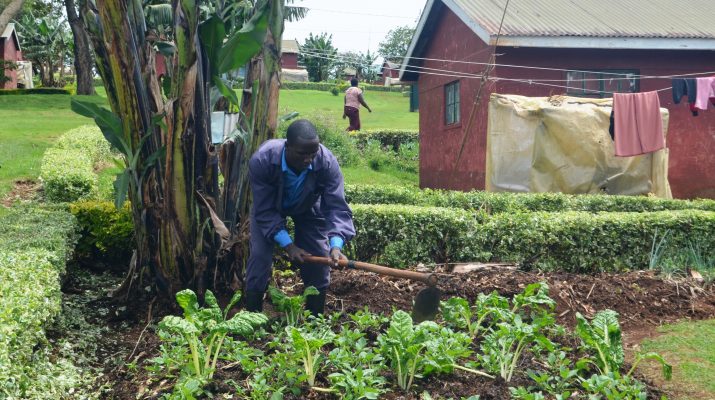Agriculture is the key sector for boosting food security in the country, which is a top agenda for the new government.
A multinational tea company in Kericho has gone full throttle to support this agenda through its kitchen garden project for its workers and their families.
James Finlay Company (K) Limited through its corporate social responsibility (CSR) project has brought smiles to its 20,000 workers and dependents through their kitchen garden project initiated in 2008.
According to the company’s Environment, Health and Safety sustainability manager Mr. Reuben Langat the project’s benefits are enormous as all their 20,000 work forces are allocated small plots at the back of their houses to serve as kitchen gardens.
The kitchen gardens entails growing of indigenous vegetables, indigenous fruit trees, banana and rearing of chicken in all the 105 villages situated in the tea company precincts.
Mr. Langat said besides the nutritional and unrivaled health benefits, the kitchen gardens have improved the diets of workers as well as contribute towards generation of extra incomes as they manage to sell their excess produce.
“It is a good project that has ran so well and the knowledge the workers have acquired they also go and replicate the same in their homes. We also have a tree nursery in the villages offering indigenous trees within the villages and fruit trees such as tree tomatoes, guavas, pawpaw, mulberry, loquats among others.
All these are meant to improve the nutrition of our workers by enabling them to get indigenous vegetables from their kitchen gardens which not only give them improved health and nutrition benefits but also help generate extra income as the workers manage to sell their excess supply of traditional vegetables and eggs to local markets around,” said Mr. Langat.
The multinational tea company advises its employees who are mainly tea pluckers to plant traditional vegetables notably amaranth (terere), spider plant (saga), black nightshade, spinach, vine spinach (ndererema), cow peas (kunde) as well as fruit trees and rearing of chicken.
The traditional vegetables are rich in iron, calcium, thiamine, fiber, ascorbic acid, zinc, sodium among others.
A visit to kitchen garden measuring 4 meters by 3metres and 4 meters by 2metres at Kaproret village within the company grounds revealed the growing of traditional vegetables like spider plant (saga), vine spinach (ndererema), cow peas (kunde), and banana trees.
A tea plucker at Kaproret tea estate, Victor Sang who joined the company in 2012 said he has been cultivating spider plant (saga), spinach, onions and banana behind his house in addition to keeping kienyeji chicken for meat and eggs.
The father of two added that he earns Shs 3,000 in a month from selling surplus traditional vegetables to traders at Kericho town main market as well as from selling eggs.
“The kitchen garden has benefited my family greatly. Our diet is composed mainly of these traditional vegetables of saga and this goes a long way towards boosting our immunities. My kitchen garden has helped in cutting down my kitchen budget by half as we get around 50 eggs per month and 50kg gunny bag of traditional vegetables which I harvest three times in a month, I use the proceeds from this to buy milk, maize and tomatoes for use in my family. I grow my vegetables using organic manure which we were taught to make from our kitchen waste,” said Sang.
The traditional vegetables, adds Sang, grow very fast, are healthier and are less affected by pests than most exotic vegetables.

